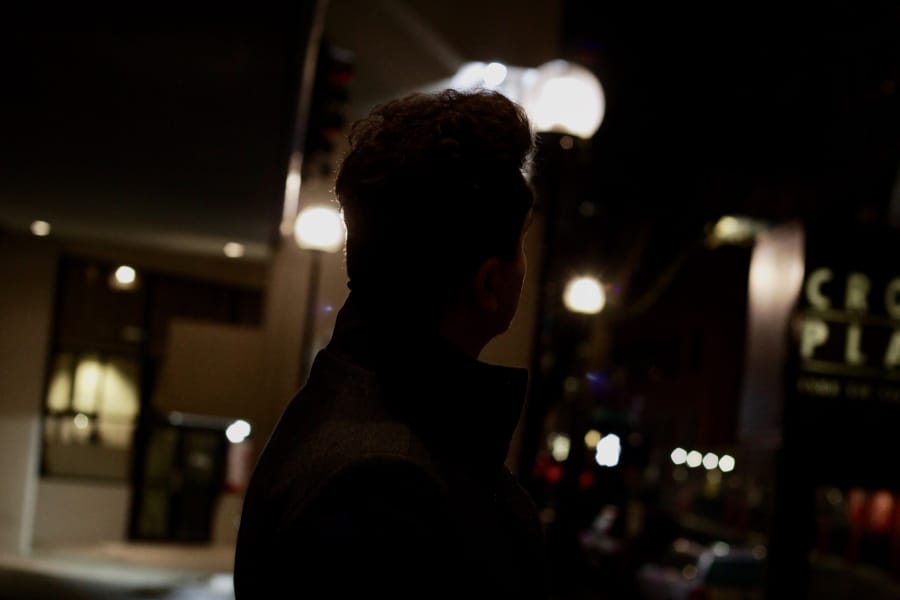PORTLAND — There was a time when Justin, an international college student in Oregon, couldn’t imagine he’d ever get to go to school in the United States.
The Iran native remembers growing up hearing about the hostile relationship between the two countries, particularly at the end of the Carter Administration, that made coming to the U.S. on a student visa all but impossible.
But as restrictions on Iranian nationals entering the country to study began to ease, Justin decided to apply to Portland State University. Since 2009, he’s earned a PhD in mechanical engineering and is working on a second master’s degree.
Justin now works in the semiconductor industry.
He’s been feeling increasingly anxious as relations between two countries he loves have deteriorated to the point that officials in both nations have hinted at a full war.
First, President Donald Trump ordered the assassination of Iranian Gen. Qasem Soleimani, which U.S. drone attacks accomplished. Then the Iranian government retaliated by launching a volley of missiles at an Iraqi base that houses U.S. troops.
Justin, whose real name The Oregonian/OregonLive has agreed to withhold for both his safety and that of his family in Iran, fears the attacks give credibility to war hawks in both nations.
He said people in both countries get “lost in emotion. You get lost in patriotism on both sides.”
“All of a sudden, it’s not a rational conversation. It’s nationalism,” Justin said.
Only nine Iranians are studying at Portland State on a student visa, according to officials at the Office of International Affairs.
Three of those students, plus Justin, who’s now a green card holder, spoke to The Oregonian/OregonLive and other media outlets Wednesday about their experiences as relationships between the U.S. and Iran have grown tense.
They said they feel torn between two worlds. They rarely mention they’re Iranian for fear of drawing attention to themselves.
All four also said they hope Americans can distinguish between them, twentysomethings and thirtysomethings looking for an education, and officials threatening war.
“We’re not supporting war,” said Andrew, who is also going by an alias. “We’re not seeking tension between Iran and the U.S. We’re not thinking the same as our government.”
For Justin, what’s worse, he can’t speak to his family back home about the tension between the two countries.
“Let’s talk about everything else but this,” Justin remembers relatives saying.
That’s because they worry about the government monitoring their conversations. And if either Justin or a relative criticized the regime in any way, it could spell trouble for both parties.
At least this time, Justin can consistently communicate with his family, he said.
Back in November, the Iranian government essentially shut off the internet and throttled mobile data in response to massive protests that erupted in the wake of a sudden surge in gasoline prices.
“That was worse,” he said. “That was much worse.”
Both then and now, Justin heard from close friends in Portland after they’d heard the news about the strife in his home country. He’s had about a decade to build that base of support. He says he’s lucky — other Iranian students in Portland haven’t had time to plant those same roots.
The difficulties for Iranians living in the U.S. didn’t begin with the Trump Administration. When President Obama signed a pair of executive orders to pressure Iran into abandoning its nuclear program in 2012, Justin said some employers took one look at his ru00e9sumu00e9 and decided it wasn’t worth jumping through the hoops to hire an Iranian national.
Those troubles certainly were amplified when Trump entered the Oval Office, he said.
Soon after the president signed his controversial travel ban, Justin realized he couldn’t visit home, nor could his family visit him in Oregon anymore. Last year, he instructed his parents to fly to Vancouver, B.C., so he could meet them there rather than navigate the paperwork necessary for them to see him in the U.S.
That doesn’t seem like a possibility anymore. When Justin heard that Customs and Border Patrol detained U.S. citizens of Iranian descent at the Canadian border over the weekend, he decided it was no longer worth the risk.
Even for U.S. citizens, Justin said, “We’d like to think we all get equal rights, but the reality is that it’s not that simple.”
Still, he remains hopeful that “cooler heads will prevail” and that tensions between the two countries eventually simmer. But that will require officials in both countries to come to the table, he said.
“I think we need changes,” he said. “We need some changes in Iran. We need some changes in this country, too.”



